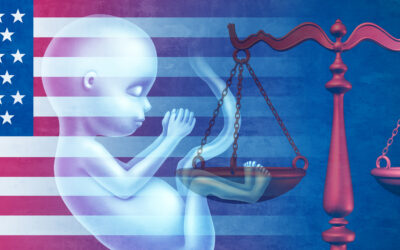Some of the Sadducees, who say there is no resurrection, came to Jesus with a question. “Teacher,” they said, “Moses wrote for us that if a man’s brother dies and leaves a wife but no children, the man must marry the widow and raise up offspring for his brother. Now there were seven brothers. The first one married a woman and died childless. The second and then the third married her, and in the same way the seven died, leaving no children. Finally, the woman died too. Now then, at the resurrection whose wife will she be, since the seven were married to her?”
Jesus replied, “The people of this age marry and are given in marriage. But those who are considered worthy of taking part in the age to come and in the resurrection from the dead will neither marry nor be given in marriage, and they can no longer die; for they are like the angels. They are God’s children, since they are children of the resurrection. But in the account of the burning bush, even Moses showed that the dead rise, for he calls the Lord ‘the God of Abraham, and the God of Isaac, and the God of Jacob.’ He is not the God of the dead, but of the living, for to him all are alive.” Luke 20:27-38
 Today’s Gospel reading is about victory of life over death, of fidelity over circumstances. The clear affirmation that God will raise the dead shows that death cannot and will not have the last word in the human story. God is in the business of destroying death, as he had foretold in Isaiah 25 when he said, “I will remove the veil that veils all people, the web that is woven over all nations; I will destroy death forever.”
Today’s Gospel reading is about victory of life over death, of fidelity over circumstances. The clear affirmation that God will raise the dead shows that death cannot and will not have the last word in the human story. God is in the business of destroying death, as he had foretold in Isaiah 25 when he said, “I will remove the veil that veils all people, the web that is woven over all nations; I will destroy death forever.”
To stand with God is to stand with life; to stand with life is to stand against whatever destroys it. We who work to transform a culture of death into a culture of life begin with this affirmation that God has already won the victory over death. We do not “wonder if ” we will be successful in overcoming abortion, euthanasia, and other forms of violence. Rather, we declare these evils defeated and, from a stance of victory, strive to bring all society into line with a victory already obtained.
The theme of fidelity in difficult circumstances provides a context for the help we give to those in difficult pregnancies. By our faithfulness to what is right, even if it seems we are going to lose our own lives in the process (literally or figuratively), we end up with the fullness of life.
Martyrdom is exactly the opposite of suicide. In suicide, one declares oneself to be the owner and disposer of one’s life. In martyrdom, one declares that God alone is owner and disposer of one’s life, which means that one can neither take it nor hold on to it at the cost of betraying Him.
Merciful Father, take away our fears and worries, and remind us that the Victory has already been won through the sacrifice of Your beloved Son. Give us willing hearts to serve You and courage to speak out for the unborn and the vulnerable. In Christ’s Name we pray, Amen.
This Lectionary Life App installment first appeared in November, 2013. It was authored by Rev. Frank Pavone, Priests for Life’s National Director and Pastoral Associate of the Silent No More Awareness Campaign co-sponsored by Anglicans for Life and Priests for Life.



